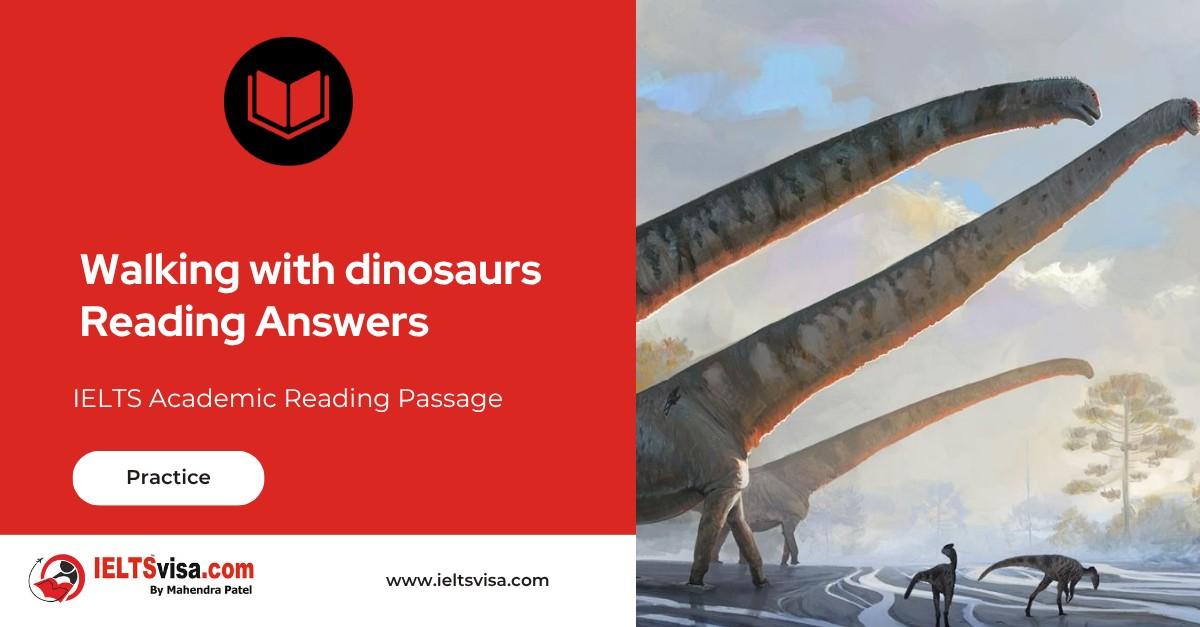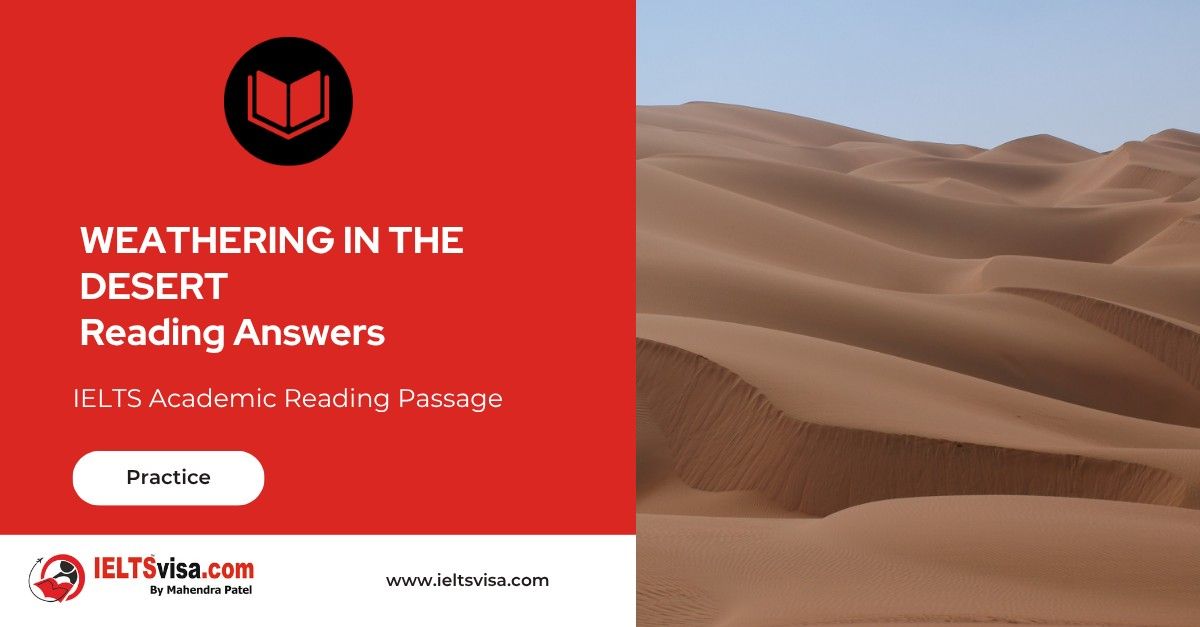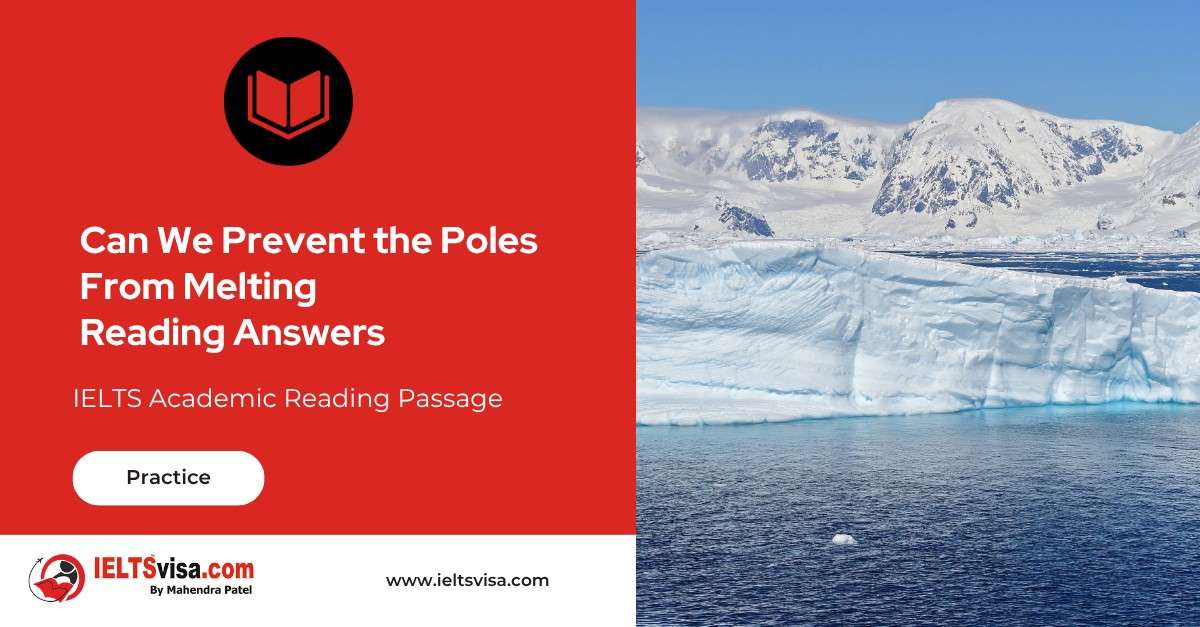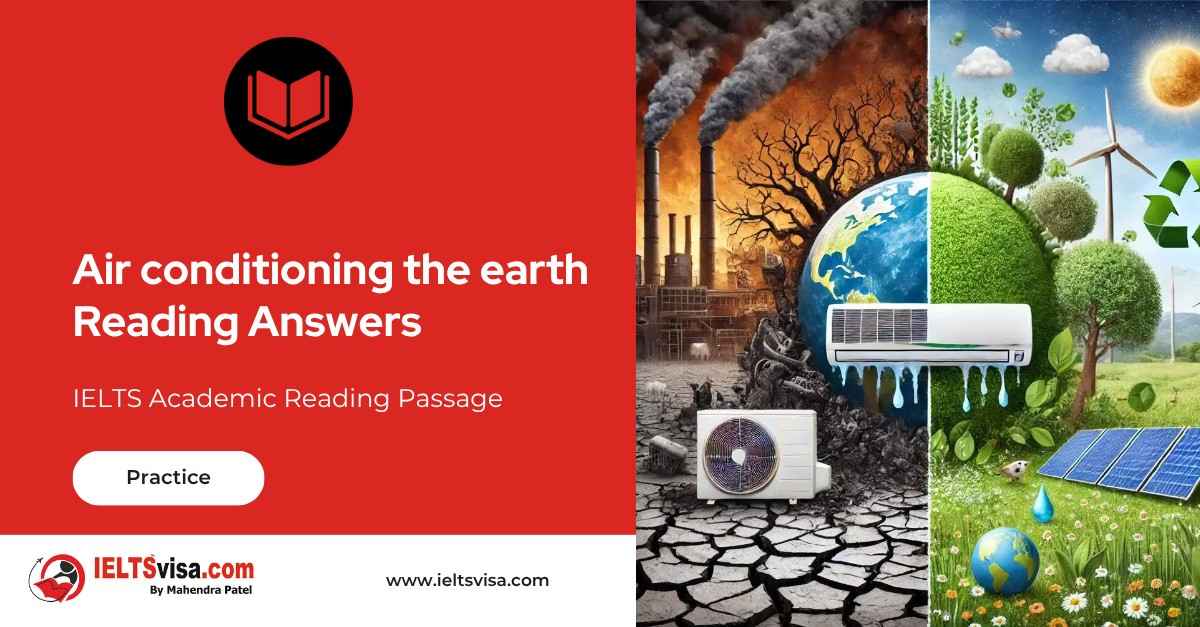Britain set for heatwave in 2050 Reading Answers
IELTS Academic Reading Passage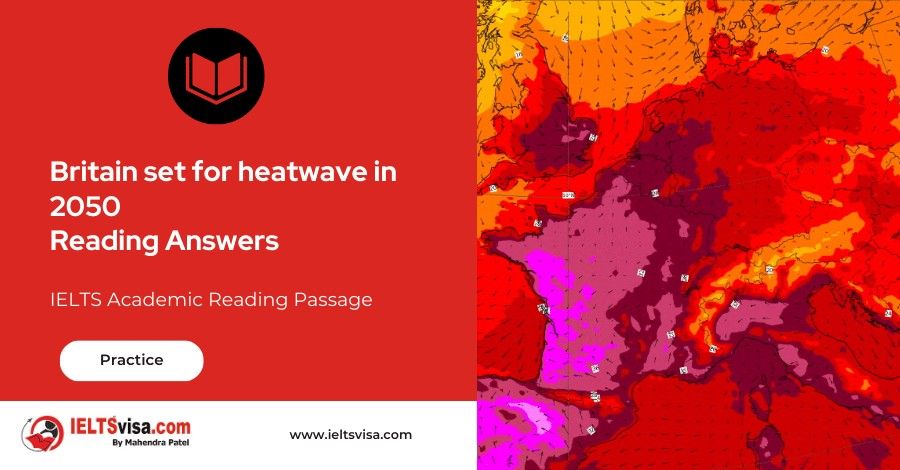
A As you sit in your home or office and look at the rain running relentlessly down the window pane, you will almost certainly be thinking, “This is more like February, when will summer arrive?” This summer seems to have been colder and wetter than ever. So here is some good news. The Meteorological Office computer has analysed weather patterns over the last 100 years and suggests that the weather will get both drier and warmer – but in fifty year’s time.
B Regardless of the effects of global warming it seems as though we can expect the average temperature in the UK to increase by 15°C. In parts of the UK we can also expect rainfall to decrease. Probably this will be most apparent in the south and east of Britain where rainfall is already the lowest in the UK. It looks as though parts of the UK may be prone to drought by the middle of the next century. This has already been noticed in the English wine making industry. John Gore Bullingham, who makes the award winning Carter Castle sparkling wine, has noticed that his grapes ripen two or three weeks earlier than they did when he started the vineyard in 1955.
C All of this seems hard to believe. At present we are in the middle of a cold, grey and distinctly sodden July. It seems as though summer will never arrive. How does this observation fit with Met Office predictions of a warmer, drier Britain? The Met Office’s chief weather forecaster Claire Miles explains, “At present the weather over the whole of North America, the North Atlantic and Europe has become temporarily blocked. Those areas which have good weather, such as Southern Europe and the Balkans, can expect to keep it and develop heat waves. Those areas which have bad weather, such as the UK and Northern France, will keep the rain and unseasonable cold.”
D We seem to have kept it for some time already. In the last two weeks of June and the first two weeks of July, the UK has had an average daily temperature of 12.90C. Although it is hard to believe, this is only 1.7°C lower than normal for the time of year. But what makes it seem so cold is that in the same period there has been only three hours of sunshine a day; less than half the average for the period.This, combined with northerly winds, makes it seem much colder. it may get a little warmer towards the end of the month but not much.
E Blocked weather does not have to be bad for the UK. The glorious summer of 1976 was caused by the same phenomenon. In that case the weather patterns came to a standstill with hot rather than cold weather over the UK. Even now, parts of Europe are suffering their highest temperatures for a generation. In Athens last week the temperature rose to 48.50C, a temperature record for Europe. The settled and warm weather which would normally come to Britain on prevailing westerly winds is now stuck over the North Atlantic, sandwiched between unusually cold and wet weather in Northern Europe and the East coast of North America.
F “Basically,” says Miss Miles, “you’ve got low pressure centred on the UK and the eastern US and two huge high pressure areas centred on the Atlantic and the Balkans. Normally high altitude winds would blow west to east and bring the weather with them. They form waves so in somewhere like the UK we usually get alternate high and low pressure systems passing over us. These bring, successively, warm and sunny, then colder and wetter weather and there is a pretty fixed boundary between the two. But this year the waves have been more pronounced. The waves become so big they turn into cells with the winds within them going round in circles. The normal west to east winds stop and the weather remains static for some time. It could stay like this for the whole summer.”
Questions 1-5
The Reading Passage has six paragraphs A – F. Choose the most suitable headings for paragraphs A-F from the list of headings below. Write the appropriate number i – viii in boxes 1- 5 on your answer sheet. There are more headings than paragraphs, so you will not use them all.
Paragraph Headings
i The process of blocked patterns
ii Better weather in Britain soon
iii The highs and lows of weather
iv Record UK temperatures
v The weather now and in the future
vi The weather now
vii Met office forecasts
viii Weather blocking in the past
1Paragraph B
2 Paragraph C
3 Paragraph D
4 Paragraph E
5 Paragraph F
Questions 6-12
Complete the notes below which summarise the explanation for blocked weather patterns using answers selected from the box below. Write your answers on the answer sheet.
Alternately, Usually, Occasionally, Always, Never, Speed up, Bigger, Rotate, Still, block, smaller

6. ……………………..
7. ……………………..
8. ……………………..
9. ……………………..
10. ……………………..
11. ……………………..
12. ……………………..
Questions 13 and 14
Complete the following paragraph based on information in the Reading Passage using NO MORE THAN THREE WORDS from the Reading Passage for each answer. Write the answers in boxes 13 -14 on your answer sheet.
The weather in Britain is expected to change in the next fifty years. The temperatures will rise and in some areas the amount of rain will certainly (13)………………indeed it has been forecast that some regions of England will be (14)…………… by 2050.

Solution For: Britain set for heatwave in 2050
Reading Answers
| 1. ii | 8. occasionally |
| 2. i | 9. bigger |
| 3. vi | 10. rotate |
| 4. viii | 11. block |
| 5. iii | 12. still |
| 6. usually | 13. decrease |
| 7. alternately | 14. prone to drought |
Review and Practice
- Regularly practice with IELTS reading samples and time yourself to get used to the pressure of the exam.
- Review your mistakes to understand where you went wrong and how to avoid similar errors in the future.
Our Books
Master IELTS Speaking Part 1
IELTS Writing Task 1 Book
IELTS Writing Task 2 Book
Britain set for heatwave in 2050 Reading Answers Explanation
Comin Soon
Practice IELTS Other Modules
IELTS Listening
The IELTS Listening test assesses how well you can understand spoken English in various contexts. It lasts about 30 minutes and is divided into four sections with a total of 40 questions. The listening tasks become increasingly difficult as the test progresses.
IELTS Academic Reading
The IELTS Academic Reading section assesses your ability to understand and interpret a variety of texts in academic settings. It is designed to evaluate a range of reading skills, including skimming for gist, reading for main ideas, reading for detail, understanding inferences, and recognizing a writer's opinions and arguments.
IELTS Speaking
The IELTS Speaking test assesses your ability to communicate in English on everyday topics. It lasts 11-14 minutes and consists of three parts: introduction, cue card, and a discussion based on the cue card topic.
IELTS General Reading
IELTS General Reading tests your ability to understand and interpret various types of texts. Here are some key areas and types of content you can expect to encounter in the reading section, along with tips for effective preparation.
IELTS Academic Writing Task 1
In IELTS Academic Writing Task 1, you are presented with a visual representation of information, such as graphs, charts, tables, or diagrams, and you are required to summarize, compare, or explain the data in your own words.
IELTS General Writing Task 1
In IELTS General Writing Task 1, you are required to write a letter based on a given situation. The letter can be formal, semi-formal, or informal, depending on the prompt. Here’s a breakdown of the key components to include in your letter
IELTS Academic Writing Task 2
In IELTS Academic Writing Task 2, you are required to write an essay in response to a question or topic. Here’s a guide to help you understand the essential elements of this task
IELTS Exam Tips
To succeed in the IELTS exam, practice regularly, familiarize yourself with the test format, improve your vocabulary, develop time management skills, and take mock tests to build confidence.
Grammer for IELTS
Grammar is the foundation of effective communication in English. Understanding tense usage, subject-verb agreement, and sentence structure enhances clarity and coherence in writing and speaking.
Vocabulary for IELTS
Vocabulary plays a crucial role in the IELTS (International English Language Testing System) exam, especially in the Speaking and Writing sections. Here’s an overview of why vocabulary is important and how it impacts your performance
RECENT IELTS SAMPLES QUESTIONS AND ANSWERS
Walking with dinosaurs
Peter L. Falkingham and his colleagues at Manchester University are developing techniques that...
Money as the Unit of Amount Reading Answers
The most difficult aspect of money to understand is its function as a unit of account. In...
WEATHERING IN THE DESERT
In the deserts, as elsewhere, rocks at the earth's surface are changed by weathering, which...
Nature on Display in American Zoos
The first zoo in the United States opened in Philadelphia in 1874, followed by the Cincinnati...
Can We Prevent the Poles From Melting
Such is our dependence on fossil fuels, and such is the volume of carbon dioxide we have...
Air conditioning the earth reading answers
The circulation of air in the atmosphere is activated by convection, the transference of heat...

